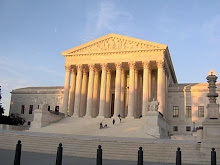I found a few interesting stories today that I thought I'd share. The first, from the American Journalism Review, discusses whether Twitter is just the latest techno-fad or can be used as a serious reporting tool.
The article does discuss the fact that may "tweets" are boring and/or useless (I'll admit that mine aren't always interesting); however, it does discuss the many ways in which the micro-blogging site can help reporters.
While I'm sick of the trend of older TV journalists (By that I mean those at least the baby boomer age) "discovering" Twitter and getting all excited about learning the new-fangled technology, I certainly appreciate the possible applications of Twitter as a reporting tool. The first photos of the crash of a plane into the Hudson were posted to Twitter, after all. Is most of the stuff on Twitter pretty useless? Probably. Is it depressing that more people follow Ashton Kutcher than CNN? Absolutely. CAN it be used as a reporting tool (both to find sources and to disseminate information) by journalists who know what they're doing and know the difference between useful information/links and crap? Definitely.
• This article I found today has some reaction to the story I posted a few days ago about that claimed the New York Times had tips about Watergate before the Washington Post but dropped the ball on the story. I'm not familiar with the site the story is on, but it's interesting.
• This story is several days old, but I'm going to post it anyway because it is another example in the debate over who qualifies as a journalist (and when). An unnamed student at San Francisco State University who was present on the scene of a murder refused to talk to police, claiming that journalism shield laws protect him because he was there as part of a photojournalism project for school.
It is a bit unclear whether the SFSU student was with the victim, who was a subject of the project chronicling life in the community, or if the student just happened upon the scene of the crime. But he knew the victim and called police and the victim's family after the murder. An LA Times column says police did confiscate the student's photographs and points out that courts have made it clear that journalism students are covered under shield laws. The student's lawyer, who is quoted in the LA Times column, says there is no evidence the student saw the murder happen. I am of the opinion that student journalists should have the same protection under shield laws as professionals, but the question of who should be protected and under what circumstances is an interesting one in an age where anyone can start a blog, take photos and claim to be a journalist.
Thursday, May 28, 2009
Random stories of the day
Monday, May 25, 2009
Subscribe to:
Comments (Atom)
